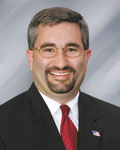November 4, 2010
When a Loved One Passes Away: First Steps
 By Curt Ford
By Curt Ford
Nash Nash Bean & Ford
The first hours, days, and weeks after a loved one passes away can be incredibly taxing and stressful. Not only are you in a state of shock and grief, there are also myriad practical tasks that you find yourself facing – and they’re often unfamiliar and confusing.
After family and friends have been contacted and the funeral arrangements have been made, there are the details of the estate that have to be dealt with. Here’s an overview of the steps that should be taken – and the roles involved – in beginning to settle the estate.
First, the decedent’s estate planning documents should be located. These documents may include a will, one or more trusts, or any combination of these. The estate planning documents will appoint a number of fiduciaries. Generally, the fiduciaries involved in settling a decedent’s estate include:
• The Executor. This person may also be referred to as the Executrix (if she’s a woman) or the Personal Representative. The Executor is named in the decedent’s will and is responsible for safeguarding all of the property to be distributed under the will, offering the will for probate, and ensuring that the appropriate debts and taxes are paid and property distributed according to the instructions in the will.
• The Trustee. The decedent may have had one or more trusts. A Trustee is the person appointed under the terms of a trust to manage and distribute trust assets according to the decedent’s instructions, as provided in the trust agreement. If the decedent also left a will, then the Trustee and the Executor will need to work together in settling the decedent’s estate.
• The Guardian. A Guardian is a person nominated in a decedent’s estate planning documents to care for the decedent’s minor children if both the decedent and the children’s other parent pass away. The choice of guardian must be approved by the probate court.
There are also certain fiduciaries who may have been acting on behalf of the decedent during his or her lifetime, whose power terminates at the time of the decedent’s death. These include:
• The Attorney-In-Fact. This is an agent named to handle financial and legal transactions under a Financial Power of Attorney. A Power of Attorney is only effective during the lifetime of the Principal.
• The Healthcare Agent. An agent acting under a Durable Healthcare Power of Attorney may have the authority to consent to the donation of the decedent’s organs, or to the cremation of the decedent.
Once the estate planning documents are located, and it’s determined which fiduciaries have been appointed, it is important for the Executor or Trustee to secure the decedent’s assets. This means making sure that no one has unauthorized access to the property.
Next, within two weeks of the death, it’s essential that the Executor or Trustee seek the advice of an estate planning attorney. The attorney will guide you through the steps of settling the estate. This will include making an inventory of the decedent’s property, filing any necessary court documents, notifying the necessary creditors and beneficiaries, and appropriately distributing the assets of the estate, among other duties. You should never attempt to distribute any of the decedent’s property or make changes to the title of any estate assets before checking with an attorney.
Settling an estate involves making countless decisions, and keeping up with many rules and requirements. An experienced attorney will help you navigate any unfamiliar terrain and make sure you achieve the best possible outcome for you and your loved ones.
Nash Nash Bean & Ford are members of the American Academy of Estate Planning Attorneys and the National Academy of Elder Law Attorneys. To receive a copy of our most recent newsletter “Your Estate Matters” or for a free consultation on Estate or Long Term Care Planning, call 309-944-2188, 309-762-9368 or 1-800-644-5345. You may also contact our firm by email at info@nashbeanford.com or visit our web site at http://www.nashbeanford.com.
The firm devotes its practice primarily in the areas of estate, business and tax planning and related areas of the law, as well as elder law and trust administration and probate. We offer guidance and advice to our clients in every area of estate planning.
This column is designed for general information purposes only, and is not intended, nor should be construed or relied upon, as legal advice. Please consult your attorney if specific legal information is desired.
Filed Under: Personal Growth
Tags: Amp, Debts, Decedent, Executor, Executrix, Family And Friends, Fiduciaries, First Steps, Ford, Funeral Arrangements, Grief, Guardian, Nash, Personal Representative, Probate Court, State Of Shock, Trust Agreement, Trust Assets, Trustee, Trusts
Trackback URL: https://www.50pluslife.com/2010/11/04/when-a-loved-one-passes-away-first-steps/trackback/


